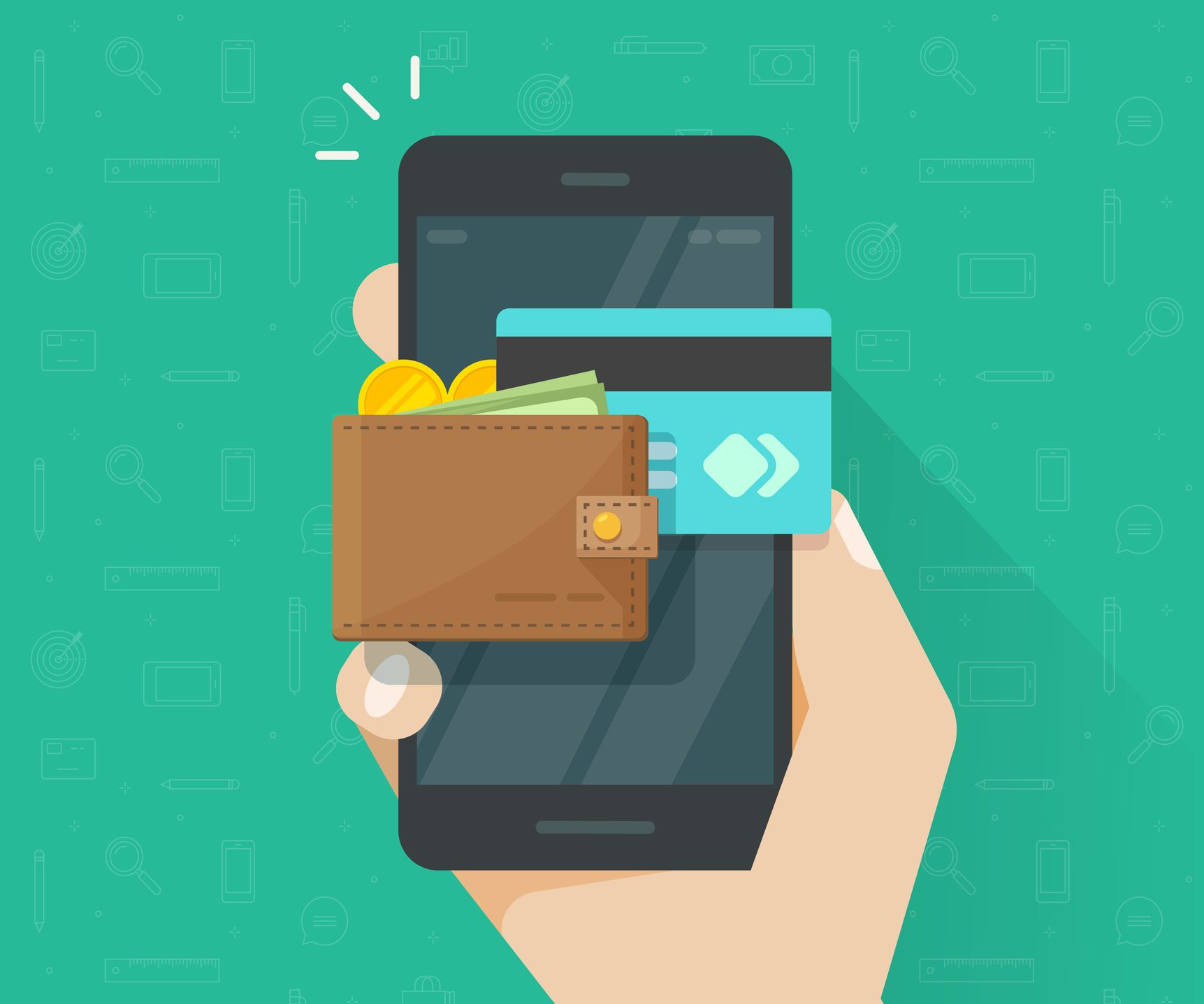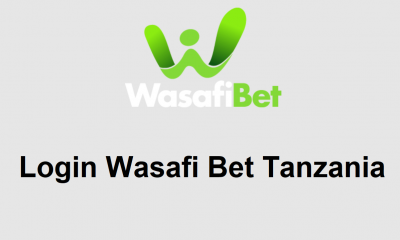Economy
How Digital Wallets Are Transforming Everyday Life?

Discover how e-wallets have been changing our lives left and right and what the future holds when it comes to finance technological advancements.
The Influence of Digital Wallets on Everyday Life
Remember when we carried cash with us all the time? We thought cards made a revolution in the world of finance, but digital wallets have taken the game to the next level.
The days of moving money in our pockets around are long gone. Even if you want to have fun at your favorite online casino, you can do it in a pure Internet format. Platforms like Hit’n’spin allow you to play without ever having to leave your home or hassle about getting real money.
This is just one of the changes eWallets have brought into our lives, and below we’re exploring all the other aspects of this magnificent improvement.
What Is a Digital Wallet?
First and foremost, what should a “digital wallet” mean to one?
In its most simplified definition, it is a type of application or software on your phone or tablet, or even a computer that stores your payment information securely. It can store your credit cards, debit cards, and even loyalty cards, all in one place.
But these wallets are not just about paying. They’re increasingly becoming fully capable financial tools. You can store virtual tickets, boarding passes, gift cards, and in some, even cryptocurrency. The likes of Apple Pay, Google Wallet, PayPal, and Samsung Pay among others have led the charge, and now there are countless others jumping on board.
Convenience at Your Fingertips
Probably the biggest ways eWallets are changing everyday life revolve around pure convenience.
How many of us have stood in a line at the grocery store, struggling to find the right card, only to drop the wallet and spill coins everywhere? With a digital wallet, those days are over. Just tap your phone at checkout, and you’re good.
It’s quick, it’s easy, and you aren’t even concerned that you may have left your wallet at home because who forgets their phone?
And it is not only about in-store payments. Digital wallets make online shopping pretty easy, too. No more typing in your card details every time you want to buy something. Just select yours at checkout, confirm the purchase, and voilа – you are good to go! It’s like having your very own personal cashier who remembers all your details.
Your Money’s Safety – Peace of Mind
Now you are probably thinking: “Okay, but what about security?” After all, a wallet used to be something you kept close to you literally. The idea of storing all your financial info on a phone actually might sound quite risky. But here is the thing: digital wallets are often more secure than traditional ones.
First of all, eWallets adopt encryption and tokenization. What it means is that your actual card number is never pulled out and shared with the merchant every time you make a purchase. That being said, it is swapped out for a unique token, one that is used in the purchase and quite meaningless to anyone who may steal it.
In addition, most wallets require some type of authentication, like fingerprint or facial recognition capability, or a PIN, before they will let you make any sort of payment.
Think of it like this: the wallet thief has all they need to begin his shopping spree on you; the cell phone thief, though, has a tough time getting his hands on your money due to these extra layers of security.
Managing Your Finances
Digital wallets help you manage your money smarter, rather than simply spend it.
Many of them already have built-in budgeting tools whereby spending is tracked; they can even go as far as to categorize purchases so you see exactly where the money goes. On top of that, it can warn you if you’re overspending in some areas.
And then, of course, there’s the issue of peer-to-peer. The likes of Venmo, PayPal, and Cash App have made it so easy to split bills, pay your friend back for dinner, or even send it as a gift.
No need for any more awkward “I’ll pay you back” moments or dealing with having cash, which nobody seems to carry anymore. You can send money instantly from a phone number and/or email address quite often.
The Future of Digital Wallets?
So, what does the future hold for digital wallets? Well, they can only keep burrowing deeper into our lives. We’re already seeing an increase in further uses in areas, such as digital IDs and even, in some locales, a driver’s license.
Can you envision not carrying any cards at all since your phone does it all?
The same potentially applies to digital wallets that become central with a wide selection of cryptocurrencies. As internet forms of money begin to create some traction, a secure, accessible means of storage and portability is viewed as a central factor in management and spending.
And as technology keeps on upgrading, so will it ensure that these wallets take space in human life. With that in mind, if you haven’t joined the digital wallet trend, this may be the perfect time. After all, who does not want to make life a little easier?
Economy
Seven Price Gainers Boost NASD OTC Bourse by 2.19%

By Adedapo Adesanya
Seven price gainers flipped recent declines at the NASD Over-the-Counter (OTC) Securities Exchange, raising the alternative stock market by 2.19 per cent on Friday.
According to data, the market capitalisation added N51.24 billion to end N2.389 trillion compared with the previous day’s N2.338 trillion, while the NASD Unlisted Security Index (NSI) climbed 85.65 points to close at 3,994.32 points, in contrast to the 3,908.67 points it ended a day earlier.
Business Post reports that the advancers were led by MRS Oil Plc, which improved its value by N13.00 to N200.00 per share from N187.00 per share, FrieslandCampina Wamco Nigeria Plc gained N7.40 to settle at N91.55 per unit versus the previous day’s N84.15 per unit, Central Securities Clearing System (CSCS) Plc appreciated by N6.08 to N71.00 per share from N64.92 per share, Afriland Properties Plc added 66 Kobo to finish at N17.17 per unit versus N16.51 per unit, IPWA Plc rose 37 Kobo to N4.15 per share from N3.78 per share, First Trust Mortgage Bank Plc grew by 11 Kobo to N1.20 per unit from N1.09 per unit, and Food Concepts Plc went up by 10obo to N3.70 per share from N3.60 per share.
On the flip side, there were two price losers led by Geo-Fluids Plc, which depreciated by 28 Kobo to N3.32 per unit from N3.60 per unit, and Industrial and General Insurance (IGI) Plc dropped 5 Kobo to sell at 45 Kobo per share from 50 Kobo per share.
Yesterday, the volume of trades went down by 92.0 per cent to 3.7 million units from 45.8 million units, the value of transactions fell by 59.4 per cent to N84.5 million from N208.2 million, while the number of deals went up by 7.7 per cent to 42 deals from 39 deals.
CSCS Plc remained the most traded stock by value (year-to-date) with 32.6 million units exchanged for N1.9 billion, trailed by Geo-Fluids Plc with 119.6 million units valued at N470.3 million, and Resourcery Plc with 1.05 billion units traded at N408.6 million.
Resourcery Plc closed the day as the most traded stock by volume (year-to-date) with 1.05 billion units sold for N408.7 million, followed by Geo-Fluids Plc with 119.6 million units worth N470.3 million, and CSCS Plc with 32.6 million units worth N1.9 billion.
Economy
FX Demand Worries Weaken Naira to N1,346/$1 at Official Market

By Adedapo Adesanya
The Naira weakened further against the United States Dollar in the Nigerian Autonomous Foreign Exchange Market (NAFEX) on Friday, February 20, by N4.97 or 0.37 per cent to N1,346.32/$1 from the N1,341.35/$1 it was transacted on Thursday.
Heightened FX demand tilted the market toward the downside yesterday, exerting upward pressure on rates despite efforts by the Central Bank of Nigeria (CBN) to stabilise the foreign exchange market.
Also in the official market, the domestic currency depreciated against the Pound Sterling during the session by N9.39 to sell for N1,815.25/£1 versus the previous day’s N1,805.86/£1, and lost N7.33 against the Euro to close at N1,584.62/€1 compared with the preceding session’s N1,577.29/€1.
The story was not different for the Nigerian Naira at the GTBank FX desk, where it depleted against the Dollar by N7 on Friday to quote at N1,356/$1 versus the N1,349/$1 it was sold a day earlier, but remained unchanged in the black market at N1,370/$1.
It was observed that risky sentiment among Foreign Portfolio Investors (FPIs) contributed to the FX market, amid fears of hot money flight due to capital gains tax and other factors.
As for the cryptocurrency market, it was mostly green yesterday in reaction to a Supreme Court verdict dismissing a fresh 10 per cent global levy by President Donald Trump.
The apex court on Friday described Mr Trump’s global tariff rollout as illegal. The decision did not clarify what should happen to tariff revenue already collected, and it doesn’t necessarily spell the end of the trade agenda, with multiple legal and executive avenues still available.
Litecoin (LTC) grew 2.7 per cent to $55.00, Cardano (ADA) appreciated 2.6 per cent to trade at $0.2815, Binance Coin (BNB) expanded by 2.6 per cent to $627.19, Dogecoin (DOGE) recouped 1.3 per cent to quote at $0.1, Ripple (XRP) jumped 0.7 per cent to $1.43, Solana (SOL) improved by 0.5 per cent to $84.15, and Ethereum (ETH) soared 0.1 per cent to $1,962.78.
However, Bitcoin (BTC) lost 0.2 per cent to sell for $67,850.49, while the US Dollar Tether (USDT) and the US Dollar Coin (USDC) traded flat at $1.00 each.
Economy
Fidson, Jaiz Bank, Others Keep NGX in Green Territory

By Dipo Olowookere
A further 0.99 per cent was gained by the Nigerian Exchange (NGX) Limited on Friday after a positive market breadth index supported by 53 price gainers, which outweighed 23 price losers, representing bullish investor sentiment.
During the trading day, the trio of Jaiz Bank, Fidson, and NPF Microfinance Bank chalked up 10.00 per cent each to sell for N11.00, N86.90, and N6.27, respectively, while Deap Capital appreciated by 9.96 per cent to N7.62, and Mutual Benefits increased by 9.94 per cent to N5.42.
Conversely, Secure Electronic Technology shed 10.00 per cent to trade at N1.62, Sovereign Trust Insurance slipped by 9.73 per cent to N2.32, Ellah Lakes declined by 7.91 per cent to N12.80, International Energy Insurance retreated by 5.56 per cent to N3.40, and ABC Transport moderated by 5.26 per cent to N9.00.
Data from Customs Street revealed that the insurance counter was up by 2.52 per cent, the industrial goods sector grew by 2.28 per cent, the banking space expanded by 1.43 per cent, the consumer goods index gained 1.23 per cent, and the energy industry rose by 0.05 per cent.
As a result, the All-Share Index (ASI) went up by 1,916.20 points to 194,989.77 points from 193,073.57 points, and the market capitalisation moved up by N1.230 trillion to N125.164 trillion from Thursday’s N123.934 trillion.
Yesterday, investors traded 820.5 million stocks valued at N28.3 billion in 63,507 deals compared with the 898.5 million stocks worth N38.5 billion executed in 61,953 deals, showing a jump in the number of deals by 2.51 per cent, and a shortfall in the trading volume and value by 8.68 per cent and 26.49 per cent apiece.
Closing the session as the most active equity was Mutual Benefits with 79.0 million units worth N427.1 million, Zenith Bank traded 44.0 million units valued at N3.8 billion, Chams exchanged 43.9 million units for N182.0 million, AIICO Insurance transacted 42.4 million units valued at N179.8 million, and Veritas Kapital sold 36.0 million units worth N90.6 million.
-

 Feature/OPED6 years ago
Feature/OPED6 years agoDavos was Different this year
-
Travel/Tourism10 years ago
Lagos Seals Western Lodge Hotel In Ikorodu
-

 Showbiz3 years ago
Showbiz3 years agoEstranged Lover Releases Videos of Empress Njamah Bathing
-

 Banking8 years ago
Banking8 years agoSort Codes of GTBank Branches in Nigeria
-

 Economy3 years ago
Economy3 years agoSubsidy Removal: CNG at N130 Per Litre Cheaper Than Petrol—IPMAN
-

 Banking3 years ago
Banking3 years agoSort Codes of UBA Branches in Nigeria
-

 Banking3 years ago
Banking3 years agoFirst Bank Announces Planned Downtime
-

 Sports3 years ago
Sports3 years agoHighest Paid Nigerian Footballer – How Much Do Nigerian Footballers Earn























